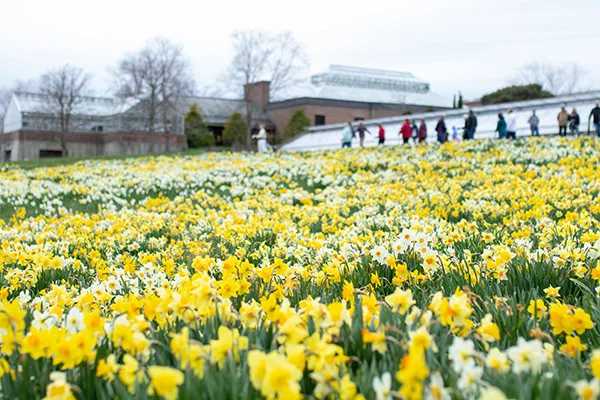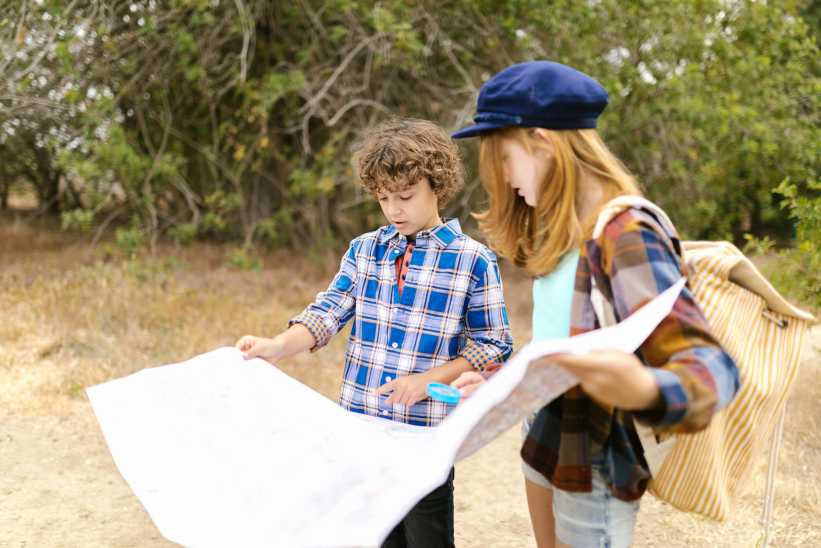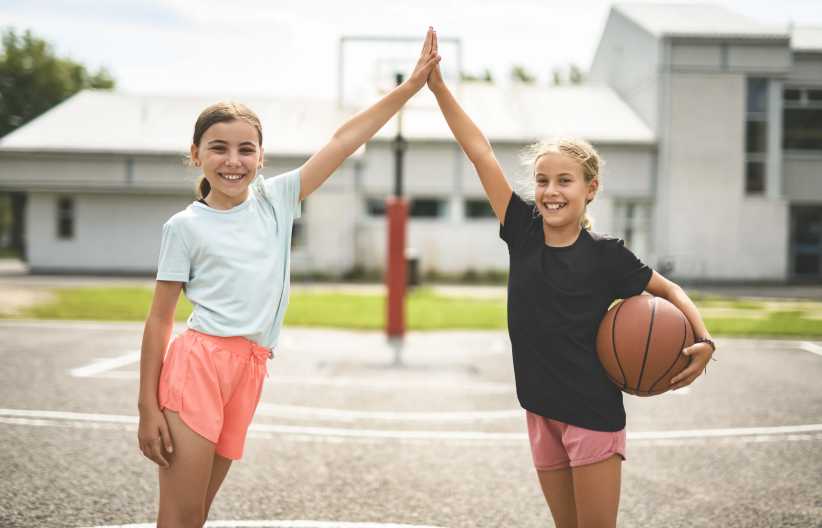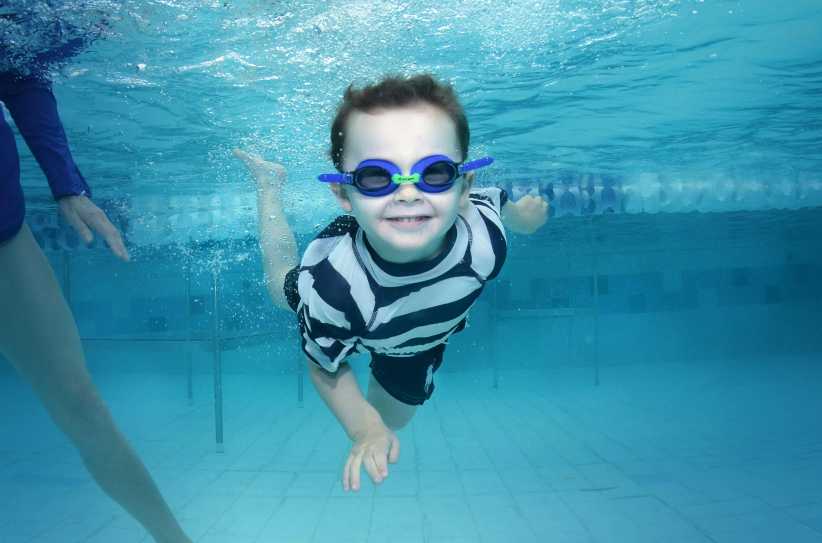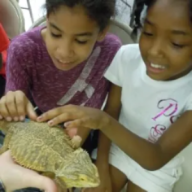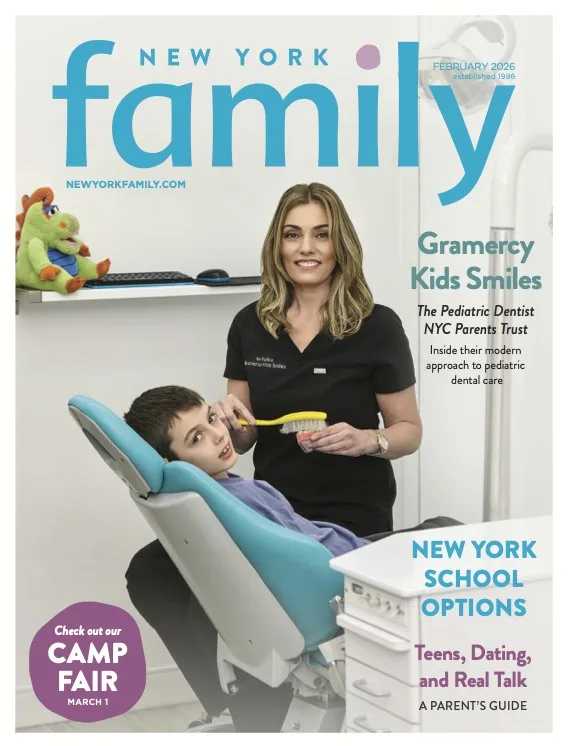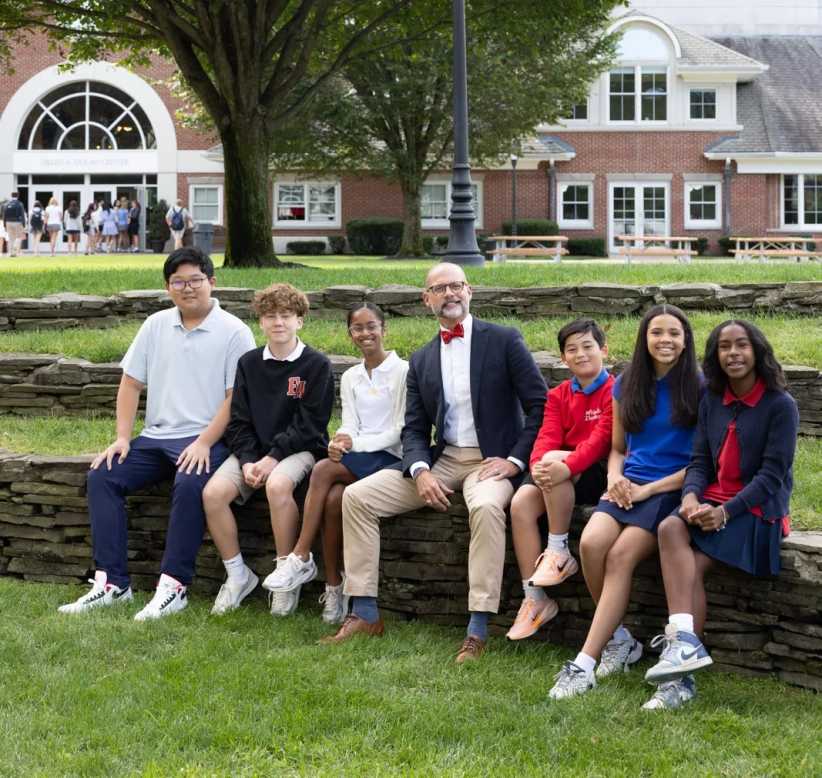
Friends Academy: From STEM Research to Future Forward AI, Integrity and Ethics Provide a Valuable Frame
Many parents may wonder when the right time is to introduce their child to Science, Technology, Engineering, and Math (STEM). Experts agree: right from the start. At Friends Academy, the independent Locust Valley Quaker institution founded in 1876, STEM learning is hands-on and inquiry-based, and starts at age 3. Kids explore topics alongside the school’s partners, including industry leaders such as the Cleveland Clinic and Cornell University, to solve real-world problems and gain valuable experience.
Friends Academy students also engage in what the school calls “messy science,” which actively encourages them to get their hands dirty while learning about the world for which they are called to be good stewards. For example, during the 2023-2024 school year, Middle School students partnered with the North Shore Wildlife Sanctuary to explore the wildlife preserve Shu Swamp. The students painstakingly cataloged the many animal species—including 16 kinds of brook trout—that call the preserve home. The result is a poster on display for visitors to the swamp, with a QR code linking to the students’ research.
Psst… Check Out 5 Great Museums on Long Island for Families
The project is one of many that Clare Nesfield, Computer and Robotics teacher for the Lower and Middle Schools, has devised with teachers. “My role is to work with teachers to create programs that bring STEM lessons to life,” she says. “We try to provide as many hands-on experiences as possible, while addressing real-world problems such as climate change, so that they can learn to think collaboratively and critically.”
The Shu Swamp project is also a good example of stewardship, one of the key elements of the SPICES approach (Quaker values of Simplicity, Peace, Integrity, Community, Equity, Service, and Stewardship) that guides and deepens the Friends Academy curriculum.
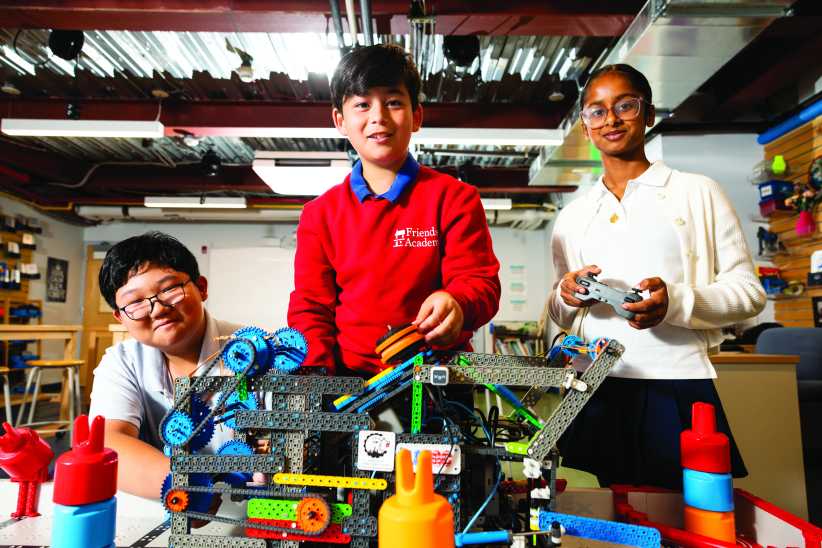
What About AI?
Of course, no discussion of STEM education can be current without diving into artificial intelligence (AI). As with other curricula, Friends Academy views this revolutionary technology through the lens of a Quaker school—that learning should be an ongoing and never-ending dynamic process that will continually reveal new information and propel new ways of thinking.
Friends faculty recognizes that AI can be a tremendous asset for students and respects potential pitfalls. So, the school has crafted a policy, guided by Quaker values of integrity, respect, and ethics, that acknowledges how AI can help and hinder learning. The framework explains to students and faculty what AI is, how it can be used safely and effectively, and when it shouldn’t be used at all. The aim is to help students use AI with integrity and skill.
“We teach students to evaluate AI for accuracy and bias, and how to engage these increasingly common tools responsibly,” says Daniel Mendel, the head of the Upper School’s English Department and its Dean of Innovation. “At the same time, we’re placing the rise of AI in the context of sustainability, which gets back to our focus on stewardship.”
Their newly-launched policy encourages teachers, students, and their families to use discernment—another Quaker value—while teachers carefully separate AI-independent (using no AI) assignments from AI-assisted tasks, in which AI can be used within strict guidelines. And, of course, learning to live in a world with AI means that students will have to grapple with ethical quandaries that arise from AI, as Friends Academy teachers guide students, while structuring assignments to reduce the risk of misusing AI tools.
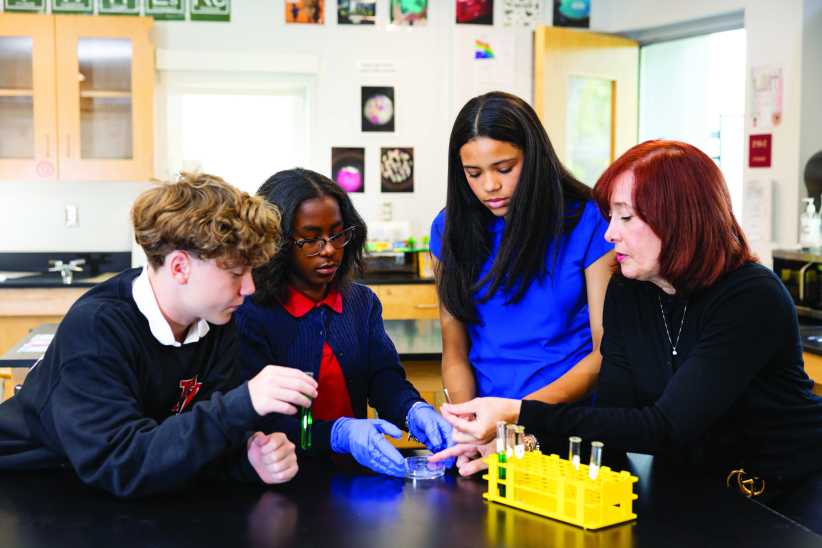
Cutting-Edge Technology for a School Steeped in Tradition
“Friends Academy is dedicated to providing students with every opportunity to engage with 21st-century technology,” says Mendel. “We’ve invested in equipment like our giant touch screens to add dimensionality to lessons. But at the same time, we’re not trying to rewrite the script that has given our students the greatest opportunity for success. The values we instill are timeless, and students carry them throughout their lives.”
The school has also invested in updating its already impressive campus. For instance, the Kumar Wang Library is undergoing a transformation to become a hub for discovery, innovation, and research, as it adds a new physics lab, computer science classroom, and an engineering and robotics workshop. In addition, an additional Maker Space is being added to the campus, where students will be able to engage in more hands-on learning while bringing their ideas to life.
A Well-Rounded Experience for a Well-Rounded Life
As crucial as STEM is at Friends Academy, it’s one part of a whole-campus experience intended to be fulfilling in every way. The arts are integral, of course, with excellent programs in music, theater, dance, and visual arts that are exhibited and performed in the school’s stunning Arts Center and newly renovated Theater. Likewise, athletics play a significant role, with more than 20 Upper School varsity teams competing throughout the year in Long Island’s highly competitive public school league (the only private school to participate), and 84% of high school students participating in at least one sport. Middle School athletes can choose from 10 competitive sports, and all students benefit from playing at least one sport each season.
Taken together, Friends Academy offers an education grounded in values that guide students through school — and life and prepare them to lead lives of purpose, integrity, and impact.
To learn more about Friends Academy, visit friendsacademy.org, attend their 2025 Open Houses on Oct. 7, 8, and 9, email admissions@fa.org, or call 516-676-0393.
Psst… Check Out Things to Do with the Kids This Weekend in Long Island


